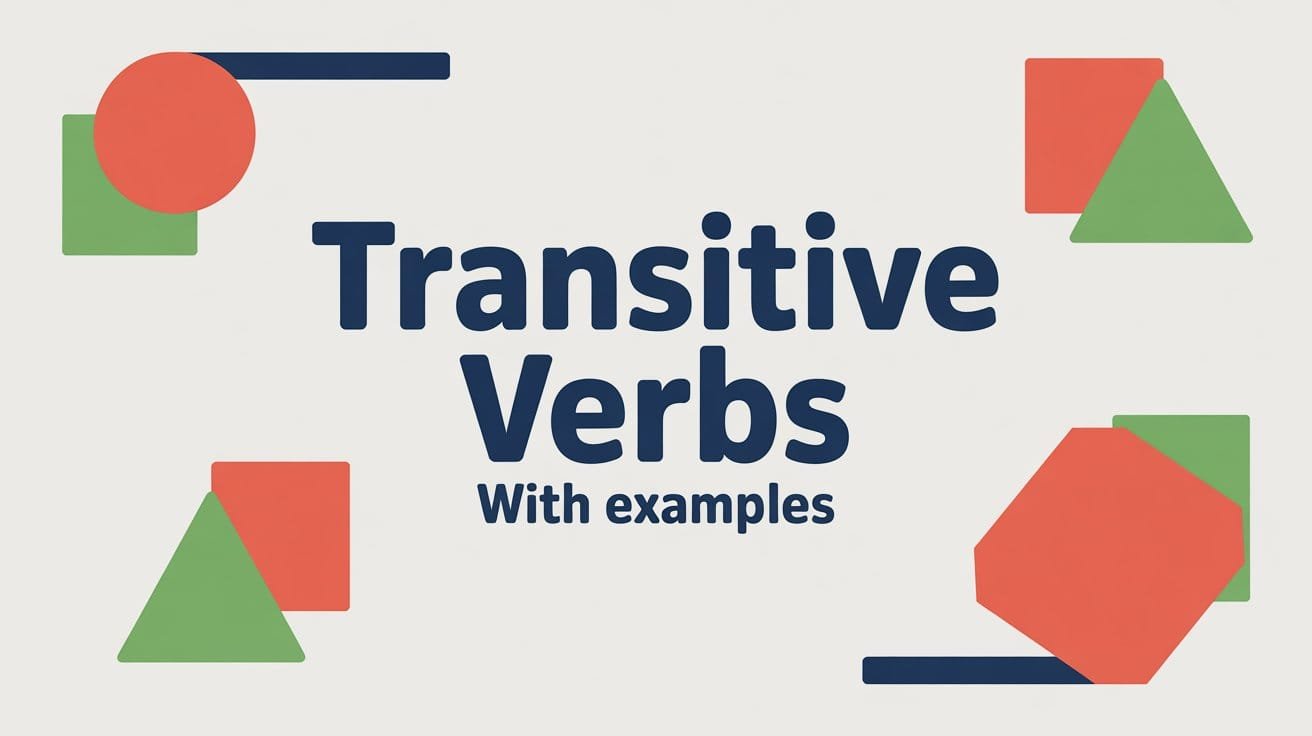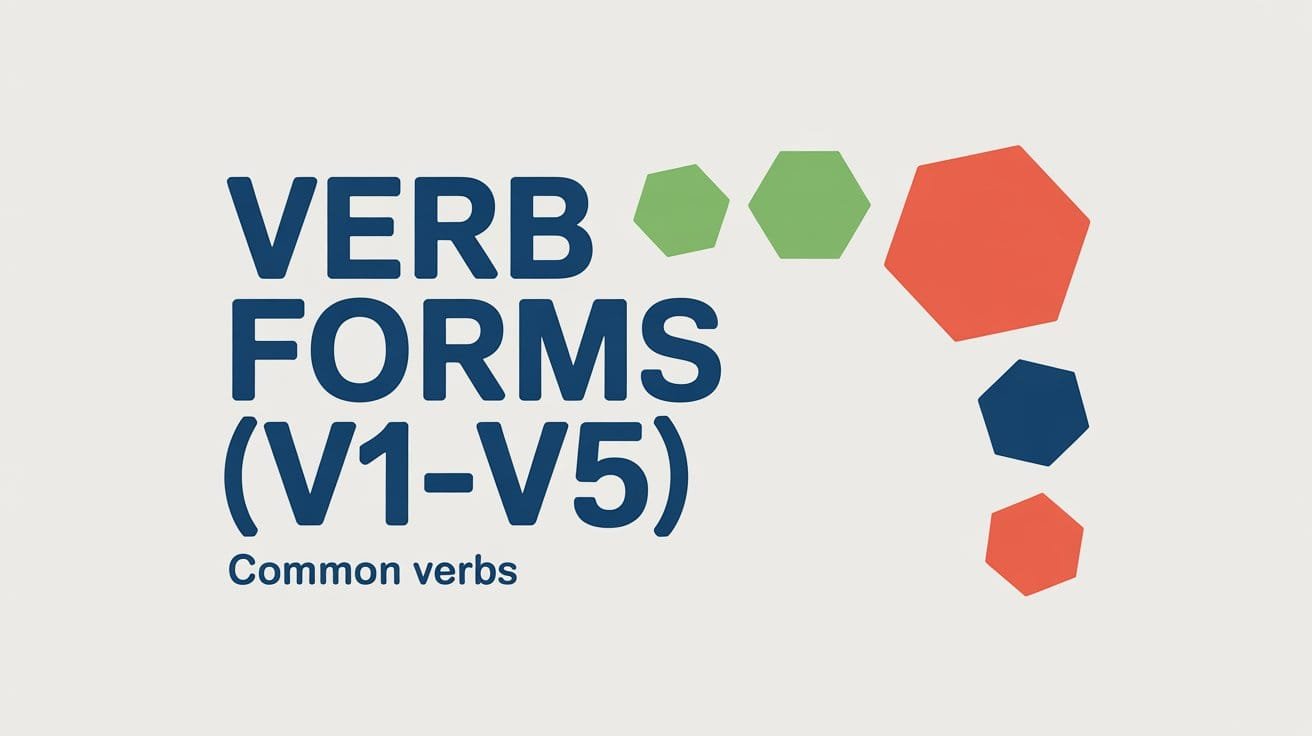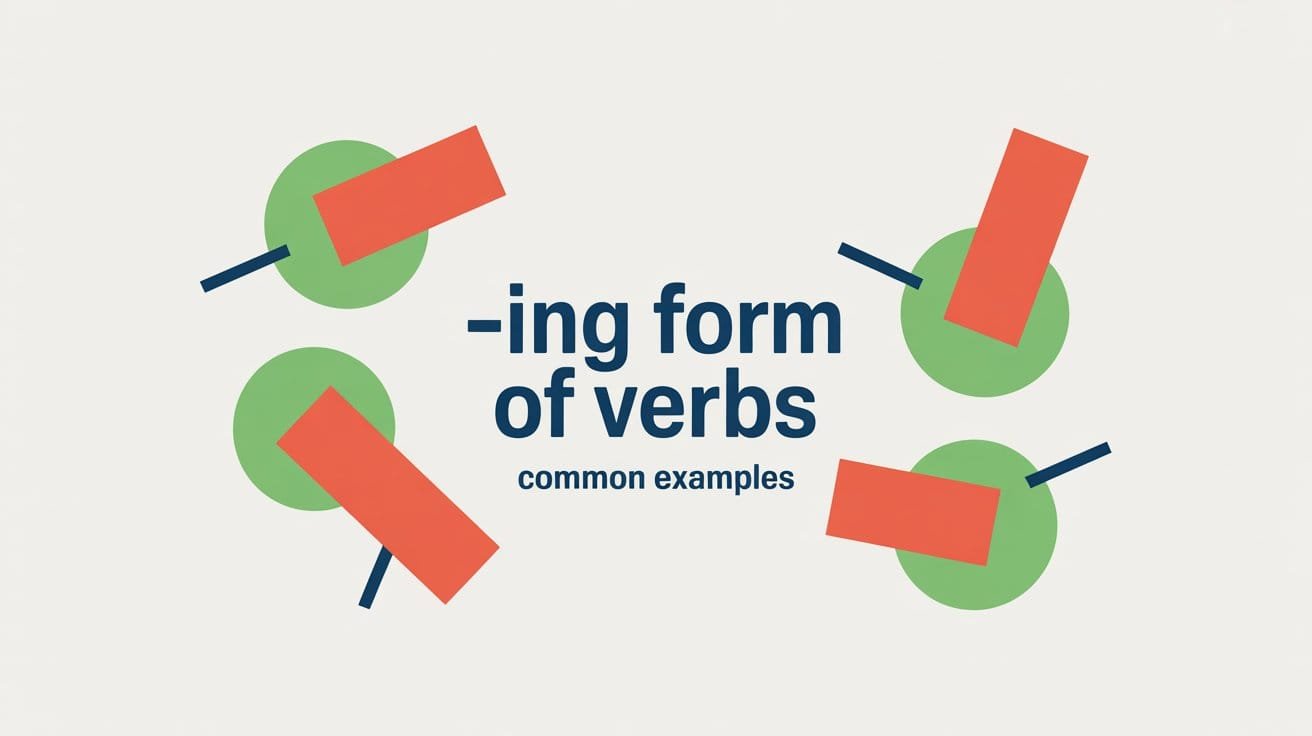A transitive verb is a verb that always takes a direct object, something or someone that receives the action. You can’t leave the sentence hanging after the verb because the meaning would be incomplete. For example, in They delivered the package, the verb delivered needs the object the package to complete the thought.
This guide provides a full list of 100 commonly used transitive verbs, followed by categorized examples that show how they work in real sentences. These examples will help you recognize and use transitive verbs with clarity and confidence.
List of 100 Transitive Verbs in English
| admire | advise | answer | ask |
| bake | beat | begin | blame |
| borrow | bring | build | buy |
| call | carry | catch | change |
| clean | climb | close | collect |
| color | compare | complete | cook |
| copy | create | cut | deliver |
| design | divide | draw | drive |
| drop | eat | educate | employ |
| encourage | enjoy | explain | feed |
| fill | find | fix | fold |
| follow | gather | give | grab |
| guide | handle | have | help |
| hold | hug | inform | invite |
| join | keep | kick | kiss |
| know | leave | lend | like |
| list | load | love | make |
| move | offer | paint | pass |
| pay | phone | plan | play |
| prepare | pull | push | |
| raise | read | receive | recognize |
| record | remind | repair | replace |
| ring | save | see | send |
| serve | show | sing | solve |
| take | teach | tell | touch |
Transitive Verbs with Examples by Category
Each of the following sections shows how transitive verbs are used in sentences. Every verb is followed by a direct object, which answers what? or whom? right after the verb.
Verbs of Action (Physical Tasks or Movement)
These verbs describe physical actions that affect someone or something directly.
- carry – She carried the groceries inside.
- catch – He caught the ball with one hand.
- build – They built a treehouse last summer.
- cut – I cut the paper along the edge.
- throw – She threw the pillow across the room.
- kick – He kicked the football over the fence.
- pull – They pulled the rope together.
- push – I pushed the chair back into place.
- clean – He cleaned the windows this morning.
- paint – She painted the fence a light gray.
- fix – I fixed the broken drawer yesterday.
- fold – Please fold the laundry neatly.
- close – Don’t forget to close the gate.
- grab – He grabbed my arm suddenly.
- drop – She dropped her keys in the hallway.
- drive – I drove the kids to school.
- pack – They packed their bags quickly.
- hold – She held the baby gently.
- open – He opened the envelope carefully.
- lift – They lifted the boxes onto the truck.
Verbs of Communication and Thought
These transitive verbs involve speaking, writing, thinking, or expressing something, usually directed at a person or an idea.
- ask – She asked a question during the meeting.
- tell – He told a story to the class.
- answer – They answered the email promptly.
- explain – Can you explain the process to me?
- inform – The manager informed the team of the changes.
- advise – She advised him to take a break.
- remind – Please remind me about the appointment.
- teach – He teaches math to high school students.
- describe – She described the scene in great detail.
- convince – They convinced her to join the trip.
- warn – The officer warned the driver about speeding.
- persuade – He persuaded his parents to let him go.
- instruct – The guide instructed the group to follow closely.
- promise – I promised him a reward.
- invite – We invited our neighbors to the barbecue.
- introduce – She introduced her colleague to the guests.
- greet – He greeted the visitors warmly.
- call – I called the doctor this morning.
- congratulate – They congratulated her on the promotion.
- thank – Don’t forget to thank your teacher.
Verbs of Transfer or Giving
These transitive verbs show that something is being given, sent, or transferred from one person to another. They always involve a direct object—the thing being passed on.
- give – She gave her brother a book.
- send – I sent the invoice yesterday.
- offer – He offered me a ride.
- bring – They brought snacks for the group.
- lend – She lent him her umbrella.
- hand – He handed the officer his ID.
- deliver – The courier delivered the package on time.
- pass – Can you pass the salt?
- pay – I paid the bill online.
- show – She showed us her travel photos.
- teach – He taught the students a new formula.
- award – The committee awarded him a medal.
- send – We sent her a thank-you note.
- allocate – The manager allocated the funds carefully.
- present – They presented the team with a certificate.
- feed – She fed the baby some cereal.
- offer – I offered him another chance.
- read – He read the children a bedtime story.
- write – She wrote her friend a letter.
- grant – The bank granted her a loan.
Verbs of Influence, Emotion, or Control
These transitive verbs express mental states, emotional reactions, or influence over someone or something. They act directly on a person, idea, or object.
- like – She likes cold weather.
- love – They love the new design.
- hate – He hates loud noises.
- enjoy – We enjoyed the performance.
- prefer – I prefer tea over coffee.
- admire – She admires her mentor greatly.
- respect – They respect your decision.
- trust – I trust his judgment.
- blame – Don’t blame him for the delay.
- criticize – The coach criticized their strategy.
- praise – She praised the team’s effort.
- control – He controls the company budget.
- influence – The book influenced her thinking.
- manage – She manages multiple projects.
- support – They supported the proposal.
- affect – The news affected the stock market.
- appreciate – I appreciate your honesty.
- fear – The child fears darkness.
- recognize – He recognized the voice immediately.
- value – They value creativity in their team.
How to Use Transitive Verbs Correctly
To use a transitive verb correctly, you must follow it with a direct object—something or someone that receives the action. Without the object, the sentence often feels incomplete or confusing.
For example:
- ✅ She painted the door. (complete)
- ❌ She painted. (incomplete—what did she paint?)
The object answers what? or whom? right after the verb:
- He called his friend. → Called whom? → his friend
- They built a shelter. → Built what? → a shelter
Be careful not to confuse prepositional phrases (like to the store) with direct objects. A true transitive verb directly affects the object without a linking word.
If you’re unsure, try removing the object. If the sentence feels cut off, you’re likely working with a transitive verb.



